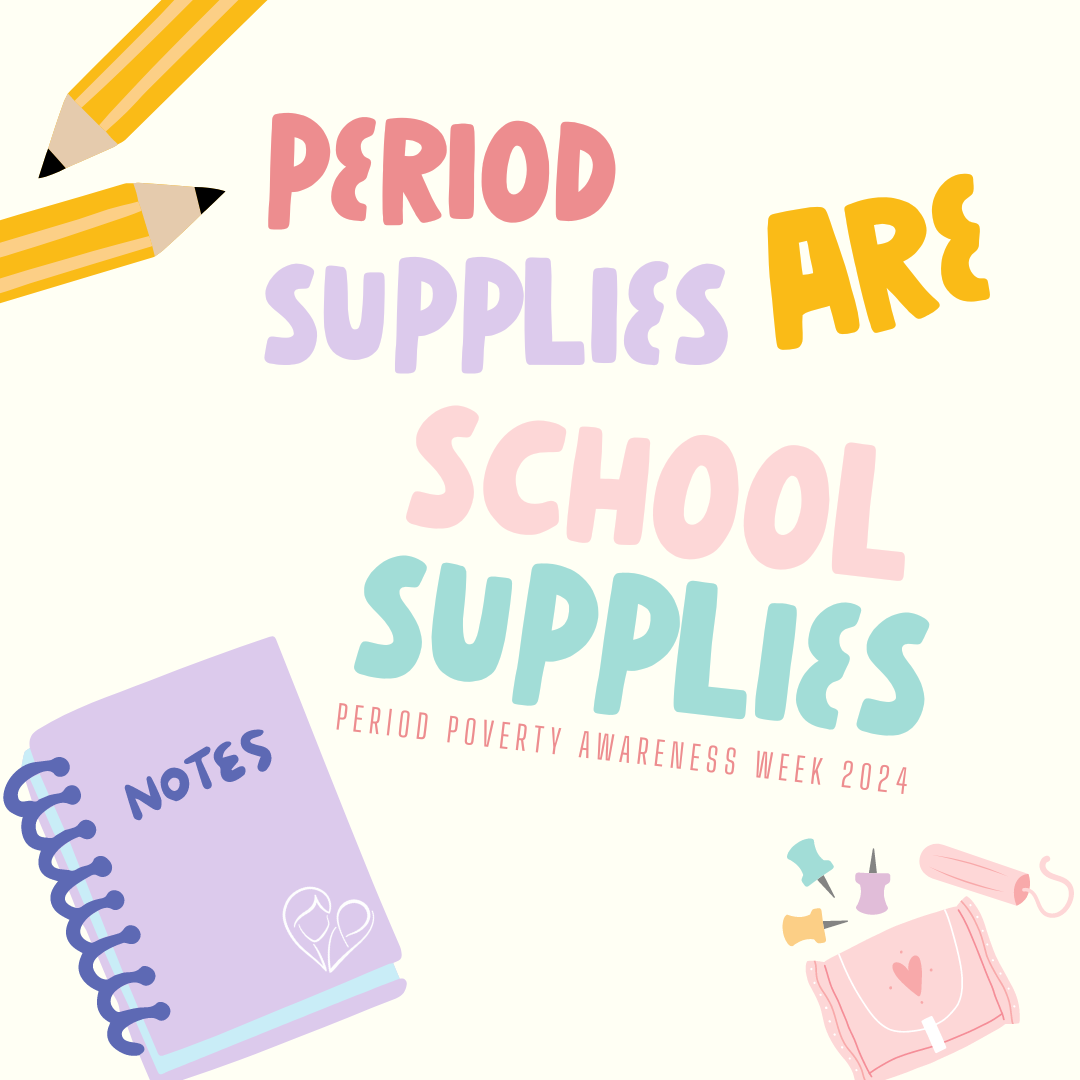As we kick off Period Poverty Awareness Week 2024, it’s crucial to acknowledge a pressing issue that affects millions of students worldwide. This year’s theme, “Period Supplies Are School Supplies,” highlights the essential nature of menstrual products in ensuring that students do not miss out on their education due to a lack of access to these necessary items.
Understanding Period Poverty
Period poverty refers to the lack of access to sanitary products, menstrual hygiene education, toilets, hand washing facilities, and, or waste management. This can lead to students missing school during their periods due to embarrassment or the inability to effectively manage their menstrual health. The consequences extend beyond just health—period poverty can lead to decreased classroom time, lower participation rates, and increased educational disparities.
The Educational Impact of Period Poverty
The theme “Period Supplies Are School Supplies” underscores the reality that without access to menstrual products, many students are at a significant disadvantage. Research has shown that students who lack period supplies may miss up to a week of schooling each menstrual cycle, which cumulatively can lead to substantial educational setbacks and increased dropout rates. Ensuring that students have access to these supplies is as crucial as providing textbooks or other learning materials.
Tackling Period Poverty: Community Initiatives and Solutions
- School-Based Programs: Schools can play a pivotal role by providing free menstrual products in bathrooms. Initiatives like these not only aid in reducing absenteeism but also help in normalizing menstruation as a natural biological process.
- Awareness and Education: Educating students about menstrual health as part of the school curriculum can promote a better understanding of the challenges and reduce stigma. Knowledge empowers students to manage their menstrual health confidently and encourages empathy and support among peers.
- Community and Government Support: Local governments can assist by funding programs that provide menstrual products to schools and community centers. Community organizations like Helping Mamas work to ensure that menstrual products are readily available to those in need, acting as a vital resource.
- Partnerships and Advocacy: Partnering with businesses and nonprofits can amplify efforts to combat period poverty. Advocacy plays a key role in pushing for policy changes that ensure menstrual products are considered essential and are funded accordingly.
Period Poverty Awareness Week 2024 calls us to action to view menstrual supplies not just as health necessities but as fundamental educational tools. By recognizing “Period Supplies Are School Supplies,” we acknowledge the critical role these products play in educational equality and empowerment.
Every student deserves the right to attend school without barriers, and addressing period poverty is a step towards achieving that goal. Let’s unite in our efforts to ensure that every student has the resources they need to succeed academically and grow into healthy adults.
For more information on how you can help and to get involved with local initiatives, visit the Alliance for Period Supplies.

